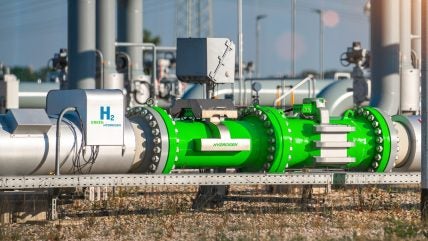
German nationalised gas trader SEFE is considering adapting underground storage caverns and pipelines to store and transport clean hydrogen, suggesting this could involve investments of up to $541m (€498m).
Egbert Laege, CEO of SEFE, told Reuters: “The exact investment calculation is not yet available, but we are talking about sums in the mid three-digit million-euro range for converting some of our gas storage sites to hydrogen.”
Converting some of the pipelines of its transport subsidiary Gascade would involve separate investments, but the requirements for these could be much higher, with Laege estimating them to be in “a low single-digit billion euros” range.
Germany wants to use hydrogen as a future energy source to end dependence on fossil fuel industries that cannot be electrified, such as steel and chemicals.
Formerly owned by Gazprom, SEFE also targets green hydrogen as part of its transition to low-carbon energy.
According to Gaege, the company is aiming to create entirely new storage space or to convert cavern spaces available to the market from 2030. SEFE currently operates 5.6 billion cubic metres of gas storage caverns, a quarter of Germany’s total capacity.
The company is also looking to build a 1,200km hydrogen pipeline called Flow, with investments made from next year to 2028.
The German Government nationalised SEFE in 2022 to secure energy supply following Russia’s full-scale invasion of Ukraine in February that year. The government must sell its stake in the company by 2028, a procedure that could start if performance over the two years remains strong, according to Laege. He added that state credit lines amounting to $7.5bn (€7bn) originally used to finance operations are no longer required.



